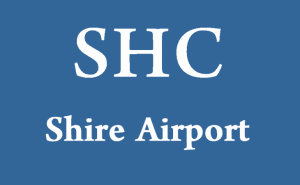Blog Archives
8 Letters
PANS-OPS stands for "Procedures for Air Navigation Services — Aircraft Operations." It is a set of international standards and recommended practices developed by the International Civil Aviation Organization (ICAO) to ensure the safety and efficiency of aircraft operations, particularly during the approach, landing, and departure phases of flight. PANS-OPS provides comprehensive guidelines for the design and implementation of instrument flight procedures, including arrival, departure, and approach routes, as well as missed approach procedures. These guidelines are critical for ensuring that aircraft can navigate safely under various weather conditions and in diverse terrain environments, thereby reducing the risk of accidents and incidents. PANS-OPS is used by aviation authorities worldwide to develop and standardize procedures that pilots and air traffic controllers follow to maintain safe and orderly air traffic management. The procedures take into account various factors such as aircraft performance, obstacle clearance, airspace structure, and environmental considerations. By adhering to PANS-OPS standards, countries can ensure that their air navigation services are harmonized with international best practices, promoting global aviation safety and operational efficiency. The document is periodically updated to reflect technological advancements and evolving operational needs, ensuring that it remains relevant and effective in addressing contemporary challenges in aviation. Through its detailed and structured approach, PANS-OPS plays a vital role in the global aviation system, supporting the safe and efficient movement of aircraft worldwide.
EUROSTEP stands for "European Strategic Programme on Research and Development for Space Transportation." It is a comprehensive initiative focused on advancing Europe's capabilities in space transportation through strategic research and development. The program aims to enhance the competitiveness and innovation of the European space industry by supporting the development of cutting-edge technologies and fostering collaboration among various stakeholders, including government agencies, private companies, and research institutions. EUROSTEP's objectives include ensuring Europe's autonomous access to space, improving the efficiency and sustainability of space transportation systems, and contributing to the broader goals of European space policy. By investing in high-priority projects and facilitating international partnerships, EUROSTEP seeks to position Europe as a leader in the global space transportation sector, addressing both current and future challenges in space exploration and commercial space activities. Through its coordinated efforts, EUROSTEP not only drives technological advancements but also supports the economic growth and strategic interests of the European Union in the increasingly competitive and dynamic space industry.
INDECOPI stands for "Instituto Nacional de Defensa de la Competencia y de la Protección de la Propiedad Intelectual," which translates to the National Institute for the Defense of Competition and Protection of Intellectual Property. INDECOPI is a specialized agency of the Peruvian government responsible for promoting fair competition and protecting intellectual property rights within the country. Established in 1992, INDECOPI's primary objectives include ensuring market efficiency by preventing anti-competitive practices, safeguarding consumer rights, and encouraging innovation through the protection of patents, trademarks, copyrights, and other forms of intellectual property. The agency operates across various sectors, including consumer protection, market regulation, and the resolution of commercial disputes. INDECOPI also plays a crucial role in enhancing the business environment in Peru by enforcing regulations that prevent monopolies, cartels, and other restrictive trade practices that can harm both consumers and businesses. Additionally, INDECOPI supports small and medium-sized enterprises (SMEs) by providing them with the necessary tools and knowledge to protect their innovations and compete effectively in both domestic and international markets. Through its comprehensive approach, INDECOPI aims to foster a competitive and transparent economic environment that benefits all participants in the marketplace, contributing to the overall economic development and prosperity of Peru.
HARMONIA does not stand for a specific acronym but is rather the name of a collaborative project or initiative focused on promoting harmony, coordination, and integration within a particular context, such as environmental sustainability, technology, or regional cooperation. For instance, the HARMONIA project under the European Union's Horizon 2020 program is aimed at enhancing the resilience of urban areas to climate change by developing innovative tools and solutions for urban planning and management. This project integrates data from various sources, including satellite imagery, to provide detailed analyses and support decision-making processes. By fostering collaboration among scientists, policymakers, and stakeholders, HARMONIA seeks to create a comprehensive framework for addressing complex challenges and promoting sustainable development. The essence of HARMONIA is its emphasis on bringing together diverse perspectives and expertise to achieve common goals, whether in environmental management, technological innovation, or social development. Through its multidisciplinary approach, HARMONIA aims to deliver practical outcomes that benefit society as a whole, ensuring that different elements of a system work together seamlessly and effectively.
UNIDROIT stands for the "International Institute for the Unification of Private Law," an independent intergovernmental organization established in 1926 to harmonize and unify private and commercial law across different countries. Based in Rome, Italy, UNIDROIT aims to prepare modern, equitable, and globally applicable legal instruments to foster international trade and investment. The organization works through a collaborative process involving member states, legal experts, and international organizations to develop conventions, model laws, principles, and guidelines that address various aspects of private law, such as commercial contracts, secured transactions, and cultural property protection. One of UNIDROIT's most notable achievements is the development of the UNIDROIT Principles of International Commercial Contracts, which provide a comprehensive set of rules to guide international commercial transactions and have been widely adopted and referenced in international arbitration and legal practice. By facilitating legal uniformity, UNIDROIT enhances predictability and legal certainty in cross-border transactions, thereby promoting economic growth and international cooperation. The organization's work is essential for reducing legal barriers and ensuring that different legal systems can interact effectively, benefiting businesses, individuals, and governments worldwide. Through its initiatives, UNIDROIT contributes significantly to the development of a cohesive global legal framework that supports fair and efficient international commerce.







